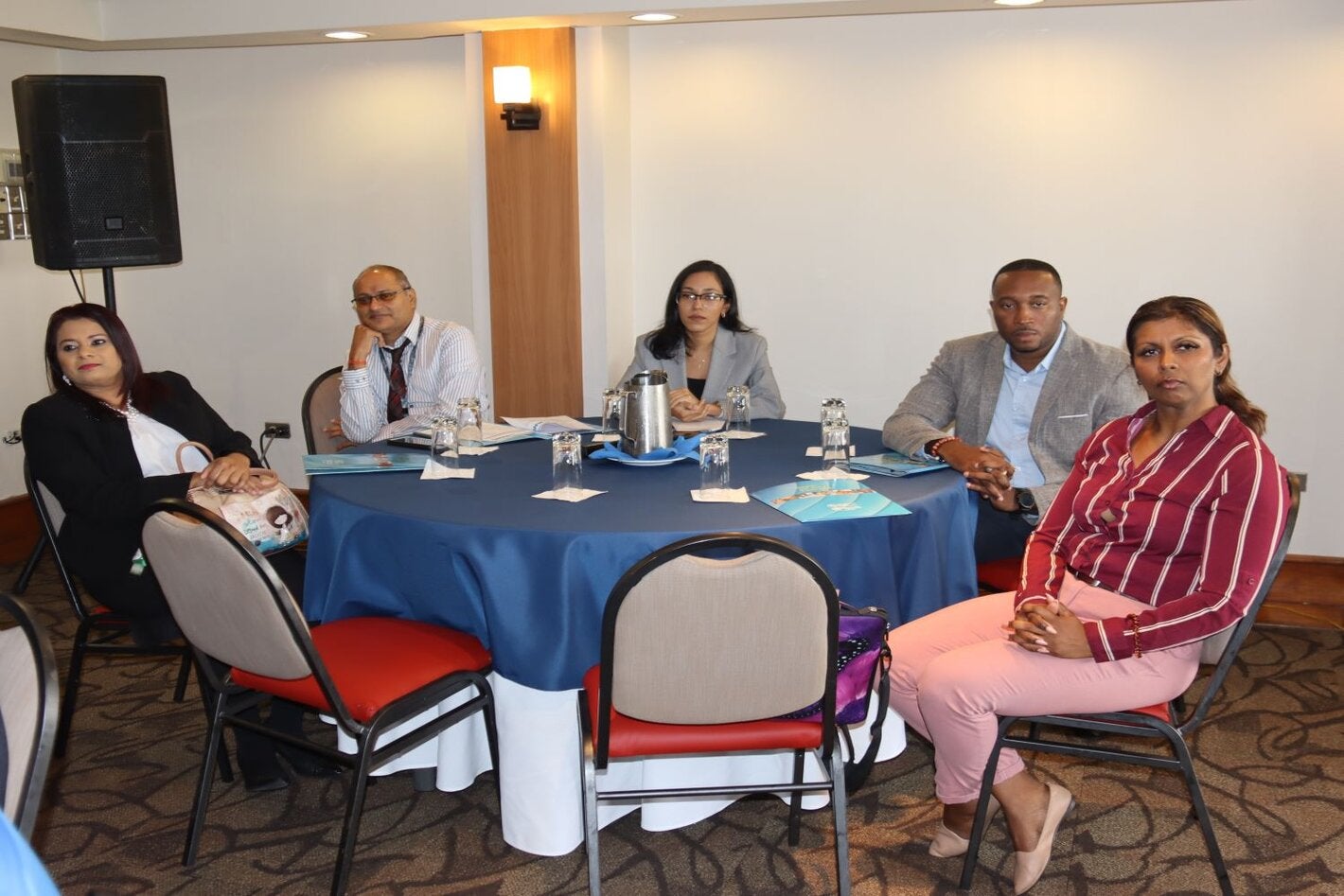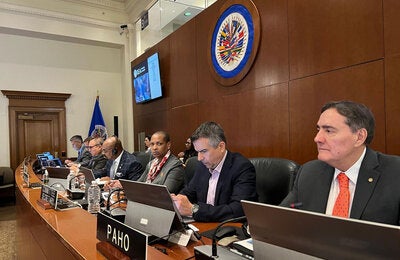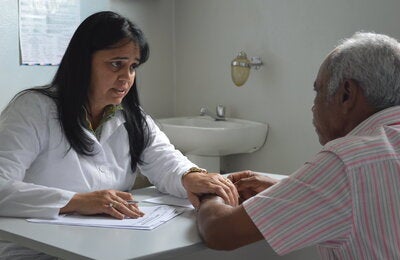
Port of Spain, 24 April (PAHO) - The Ministry of Health of Trinidad and Tobago, in conjunction with its Regional Health Authorities; collaborated with the Pan American Health Organization (PAHO), to convene the Intra-ministerial Climate Change and Health Workshop. Key stakeholders from various ministries and agencies convened to address the urgent need for intersectoral collaboration in combating climate-related health challenges.
The participants included stakeholders representing Government Institutions and various Ministries: the Ministry of Planning and Development, Rural Development and Local Government and the Tobago Division of Health, Wellness and Social Protection. In addition to Ministries, several Agencies were in attendance, including the Disaster Management Department of the Port of Spain City Corporation; the Public Health Department and Disaster Coordinating Unit of the San Fernando City Corporation, the Office of Disaster Preparedness and Management (ODPM), Trinidad and Tobago Meteorological Services, Multi-lateral Agreement Unit – Ministry of Planning and Development, and the Environmental Management Authority (EMA).
The proceedings commenced with opening remarks from three speakers: The Honourable Mr. Terrence Deyalsingh, Minister of Health; Mr. Austin Agno, Advisor Ministry of Planning and Development, representing the Honourable Mrs Penelope Beckles-Robinson; the Ag. PAHO/WHO Representative; Dr. Michelle Harris TTO.
The guest speakers emphasized that climate change poses a multi-faceted challenge to the Health System of nations worldwide and the Caribbean is no exception. As temperatures rise, extreme weather events become more frequent and environmental conditions shift causing the health of our citizens to become increasingly at adverse risk. Caribbean States, being surrounded by water, these threats are not only environmental, but the consequences can also interact with the health and well-being of citizens affecting livelihoods and economies. Enhancing resilience to climate change requires a composite approach by working together to develop comprehensive strategies that integrate health considerations into planning, policy making and implementation.
The Workshop’s aim was to emphasize the importance of coordinating intersectoral and stakeholder engagement for the inclusion of health issues in climate change planning, programming, and implementation. Participants further discussed the integration of health and climate change topics into both inter and intra-ministerial planning for climate change action and sought to identify opportunities and technical topics for strengthening intra-ministerial climate change committees and/or working groups.
An especially important element of this workshop was the panel and breakout group discussion segment. The discussions centred around what the various Organizations, Ministerial Divisions/Departments/Units are already implementing to build resilience to the impacts of climate change. The Terms of reference which identified the structure and content, including a guide to completion of the committees and working groups’ workplans were also initiated.
The Ministry of Health is committed to protecting Public Health and advancing the Sustainable Development Goals, through a multi-sectoral approach engaging the various ministries, departments and Agencies.The workshop was a crucial step towards breaking down barriers and was successful in emphasizing the need for building partnerships to enhance both intersectoral and intra-ministerial capacities to withstand the effects of climate change.
With insightful discussions and a shared commitment to action, the workshop marked a significant step towards building resilience and fostering collaboration across sectors.



